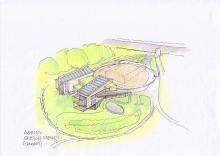Robert Largan, Tory MP for High Peak, emphasised the critical importance of UK aggregate producers during a speech and subsequent question and answer (Q&A) session at the British Aggregates Association (BAA) annual general meeting at The Palace Hotel in Buxton, Derbyshire, on Monday 21 June.
“Nationally, the aggregates industry generates billions of pounds and employs thousands and thousands of people both directly and indirectly. It is playing an essential role in how we recover and build back from an incredibly difficult last 18 months, including in the delivery of the Government’s vital building and infrastructure agenda. The country needs to build, and I thank you so much for what you are doing.”
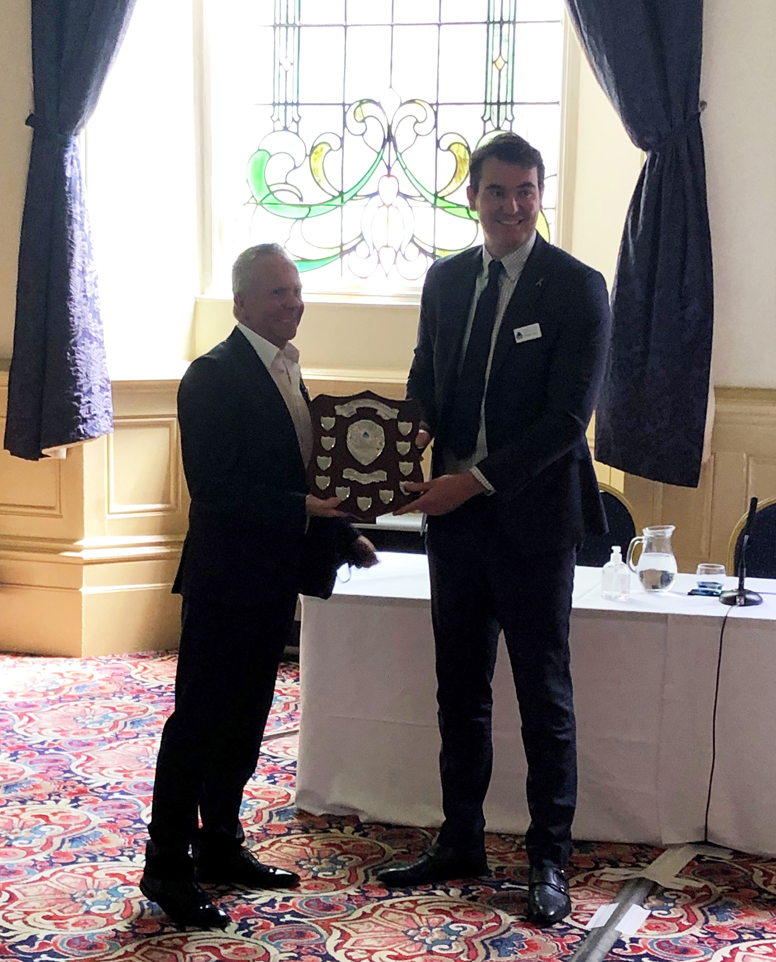
Largan said it was “absolutely right” that the BAA was staging its AGM in Buxton. “I’m proud to represent a constituency with more quarries than any other constituency in the country. It’s a fantastic boast. We have some amazing businesses here that are the core part of the fabric of Buxton and the wider High Peak. They create a huge number of jobs, not just in employing people directly but indirectly via suppliers and the haulage industry.
“The aggregates industry also provides a huge amount of community support through donations and taxation. This makes an enormous difference. Just last week, I was a volunteer levelling a new path around Combs Reservoir using aggregates that had been donated for free by a local quarry.”
Largan said that despite the huge difficulties caused by the COVID-19 pandemic, he was “very optimistic” about the future of the UK aggregates industry.
The Derbyshire-based MP said he took great encouragement from Chancellor of the Exchequer Rishi Sunak’s spring budget announcement on 3 March 2021. The Chancellor pledged a £65 billion boost for COVID-hit businesses and workers alongside a raft of new trade initiatives. The comprehensive package included forming at UK Infrastructure Bank in Leeds, with an initial capitalisation of £12 billion. Sunak hopes the initial sum will stimulate investment of £40 billion.
Largan also praised the UK Chancellor’s proposed Super Deduction for capital investment. Under the existing rules, a construction firm buying, say, £10 million of new equipment could reduce their taxable income in the year they invest by just £2.6 million. With the super-deduction, they can reduce it by £13 million.
“I think it’s a game-changer for industry. It will really encourage lots of investment in capital equipment and create a lot more jobs. The new UK Infrastructure Bank makes a very positive statement. It’s absolutely fantastic it’s going to be in Leeds as it shows real commitment to the North of England.”
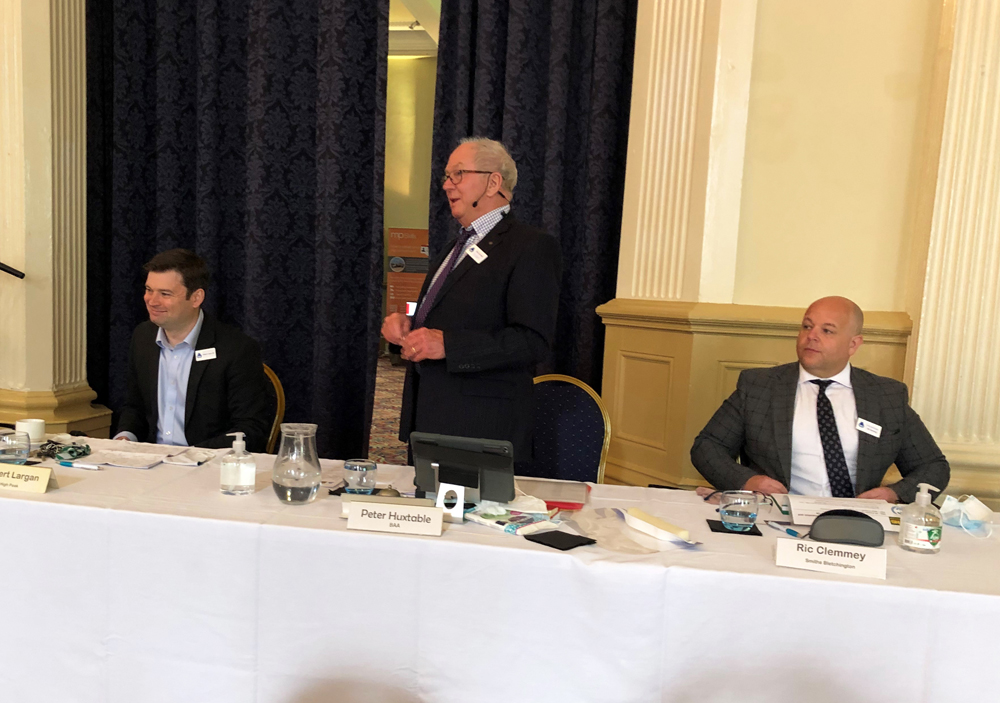
Largan said that equipping more people with the skills needed to implement the UK Government’s COVID recovery plan would remove a potential ‘roadblock’ to its successful implementation.
He said the huge bill accumulated by the UK Government in tackling the COVID-19 pandemic must not deter the UK government from delivering on its commitment to new wide-ranging infrastructure across the country.
In the Q&A with the High Peak MP, AGM attendees, including representatives from many leading independent UK quarrying companies, highlighted the need for the Government to help tackle a range of national aggregates industry challenges. These included the lack of a detailed, up-to-date mineral planning policy to help quarry operators plan for and meet the rising demand for aggregates. Higher aggregate demand is linked to the UK Government’s Build Back Better strategy of investing in new infrastructure in the wake of the COVID-19 pandemic. It is also due to ongoing and planned work on megaprojects such as High Speed 2 (HS2), HS3, Crossrail, the Lower Thames Crossing, Heathrow airport expansion, and the Hinkley Point C nuclear power station. In addition, the much-publicised Levelling Up plan, aimed at improving transport and other infrastructure in the Midlands and North of England while also creating new jobs in economically depressed towns and cities, is expected to boost aggregates demand further.
“We do need to be aware of bottlenecks within the industries needed to build new infrastructure. That’s why investing in things like ‘The Lifetime Skills Guarantee’ and getting more skilled people into our industries is essential,” said Largan.
Largan was also asked to respond to widespread aggregates industry anger over the recently announced end of the tax rebate for the quarrying and construction industry’s use of red diesel.
From April 2022, red diesel will be available only to agriculture and the rail sector. As a result, users of off-highway construction machinery will have to pay an extra 46.81p per litre for their diesel, paying the standard tax rate of 57.95p per litre rather than the subsidised red diesel rate of 11.14p per litre. Quarry operators say this will notably increase their site operating costs.
“I have taken this issue up previously with ministers. It affects a lot of businesses in my constituency. It is very difficult given the amount of money involved. I’m very happy to keep raising your concerns on this.”
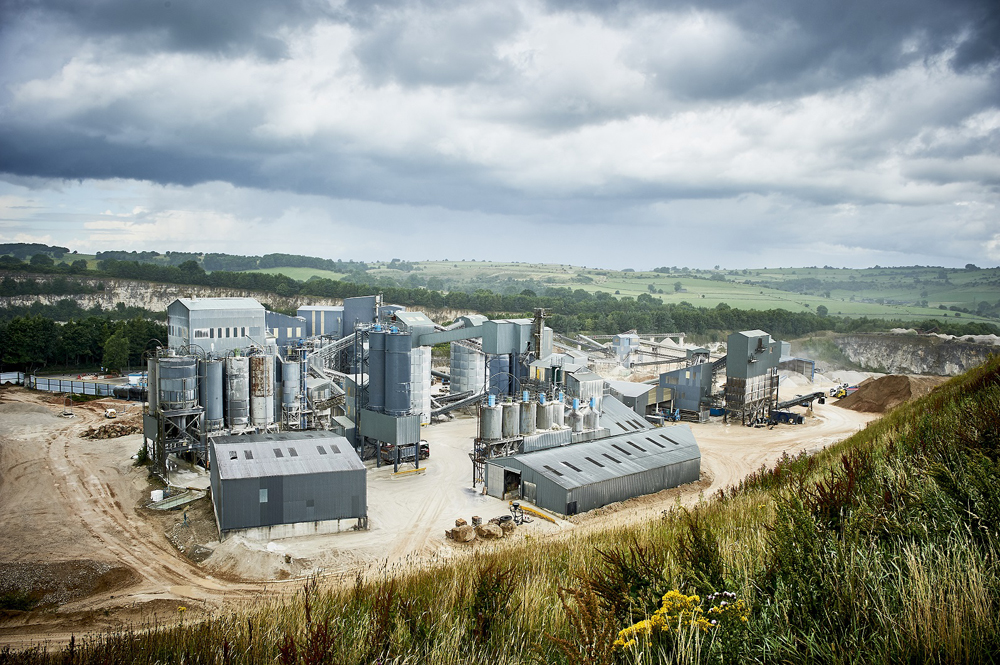
Richard Bird, BAA executive officer, said the UK Government had failed to be straight with people and questioned why the aggregates industry was being hit with more environment-related taxes than other industries.
“Robert, you mention the red diesel issue, and the amount of money it’s going to cost this industry is eye-watering. One thing that makes us feel a bit annoyed is that we were told this is being done for an ‘environmental reason’. It would have made more sense if the Government had just said, ‘We’ve spent £370 billion on [tackling] COVID, and we need to get some money back by doing away with the red diesel rebate’. It makes us feel stupid and angry that they can’t be honest with us.
“We’ve suffered one environmental tax anomaly with the Aggregates Levy, where quarries around this area that made limestone for industrial purposes could not get exemptions from the Levy if they made ‘dirty’ aggregate, so to speak. But down in Cornwall, no Levy was paid on aggregate that was a by-product of the China clay industry. We feel treated unfairly when it comes to environmental matters, and it would be good if someone like you could press Government a bit more on our behalf.”
Responding to Bird, Largan said: “I hear what you are saying. One of the biggest frustrations is that it feels like there isn’t a level playing field. We govern by consent, and the Government needs to treat people as adults. You have to be upfront with people as to why things are happening.”
In the morning, BAA AGM attendees heard thought-provoking cameo presentations. Ric Clemmey, managing director of Smiths Bletchington, highlighted his company’s and the wider industry’s work on reducing carbon emissions in a talk titled Net Zero, Quarrying & Fuels of the Future. He was followed by Adrian Wilkinson, MD of Quarry Design, and his talk Drones over Derbyshire; Alan Law, deputy CEO of Natural England, on the topic of Biodiversity Net Gain & the Aggregates Sector; Neil Peacock, MP Skills (MPQC – Mineral Products Qualifications Council), who covered Managing Contractors; and Chris Rowan, who highlighted the vital industry futureproofing work of the University of Derby’s Centre for Mineral Products. Meanwhile, Roy Bush, who worked for the Health and Safety Executive (HSE) at HM Inspector of Quarries from 1993 to 2017, and the co-founder of UK-based minerals industry consultancy MinExp, gave AGM attendees an update on the BAA Assessment of Operating Standards Scheme.
The morning session was concluded by the announcement of the BAA’s Quarry of the Year. The coveted award was won by Smiths Bletchington’s Gill Mill Quarry in Oxfordshire, with Ben Strickland, the quarry’s manager, collecting a commemorative shield.
The AGM’s afternoon session included an Interactive Health & Safety Forum seminar chaired by Viv Russell, MD of Longcliffe and chair of the IQ (Institute of Quarrying) and QNJAC (The Quarries National Joint Advisory Committee). The panel comprised Colin Mew, HM Inspector, HSE; James Thorne, CEO of the IQ; and John Wilkinson, CEO of MPQC.

Mew expressed concern that accidents and dangerous incidents logged under RIDDOR (Reporting of Injuries, Diseases and Dangerous Occurrences Regulations) had increased. He said it was critical that UK aggregates operators reemphasised their commitment to quality health and safety standards, including pedestrian safety, as the industry ramped up its post-COVID-19 production.
Wilkinson said that while many industry training schemes were working well, the numbers on Level 5 apprenticeships at the University of Derby’s Centre for Mineral Products were down by around half. He said it was also continuing to prove difficult to get Level 2 apprenticeships going.
“There is a £9,000 payment available from the apprenticeship levy pot if you use them, but companies are reluctant to for two reasons. One is not wanting to bring young people into what is a dangerous environment. The second is the requirement for a 20% off-the-job training commitment. I’m really surprised that the industry hasn’t done more to speak to Government about how apprenticeships can be changed.”
Looking forward, Wilkinson said mp connect is set to be a “game-changer” for the aggregates industry. The state-of-the-art application offers a fully integrated learner management system and will ultimately replace the amount of safety cards that drivers and contractors are required to carry.
The MPQC established the scheme in collaboration with the Mineral Products Association (MPA). Wilkinson and several colleagues demonstrated mp connect technology during the BAA AGM’s morning session.
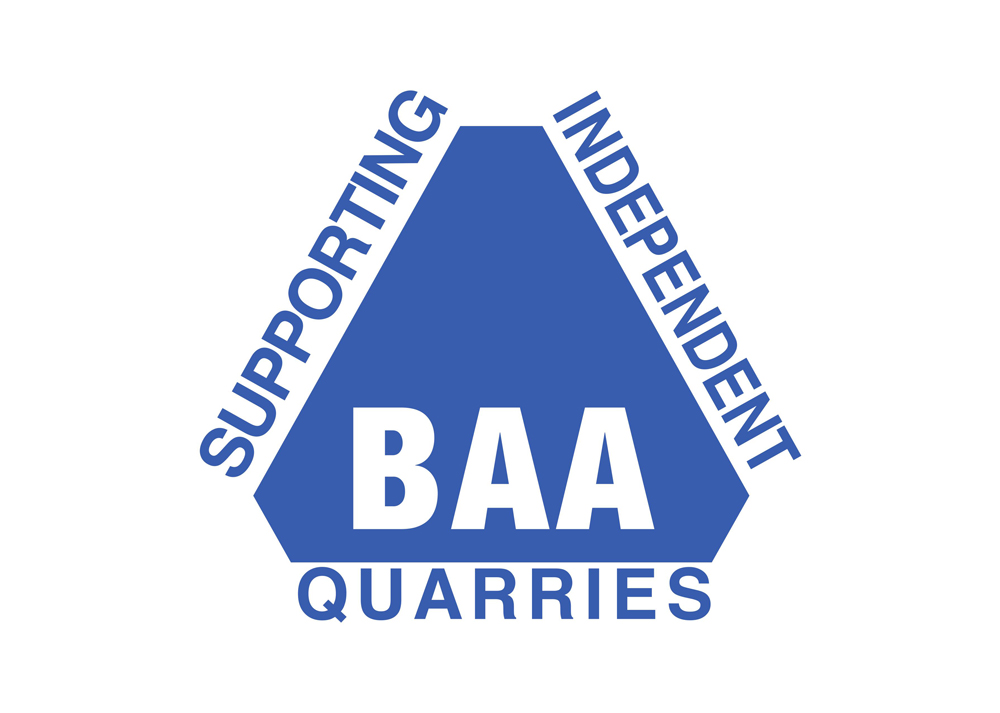
Longcliffe MD Russell said there was a lot of disappointment within the UK minerals production industry that the Government is not talking directly to it. “We’ve lost the opportunity to gain a lot of funding for skills and training, and our industry is now put in with other manufacturing areas.
“We heard this morning from the local MP [Robert Largan] how important we are as an industry, and yet because we’ve been talking as separate trading associations and institutions, we haven’t actually had the voice that we require to get the funding to do the important training.
“The Mineral Products Education and Training Board is in an intermediate stage, where we’ve had commitments from the CEOs of the major companies. John [Wilkinson – MPQC] and I are on it. I’m representing the IQ and a large SME. I’m also certainly thinking with my BAA hat on. The aim is to ask the MPQC through its existing structure to provide the skills and development pathways we need for our industry. It is a fantastic opportunity to have the industry talking as a whole.”
IQ CEO Thorne said that the Government needed to back up its verbal recognition of the importance of the UK aggregates industry by supplying the funding to train the much-needed next generation of “competent and skilled” UK quarrying professionals.
The seminar was followed by an entertaining and in-depth presentation by Andy Littler, formerly of Longcliffe, Tarmac, and Hanson, titled Quarry Restoration, Landscape & Biodiversity. Littler highlighted eye-catching examples of the benefits of biodiversity in former active quarry sites and, crucially, he offered cogent advice on how best to go about quarry restoration, landscape, and biodiversity projects.
The BAA AGM also included an exhibition featuring Calor, Command Alkon, Influential Management, Mineral Products Qualification Council, Quarry Design, and Verlingue.


